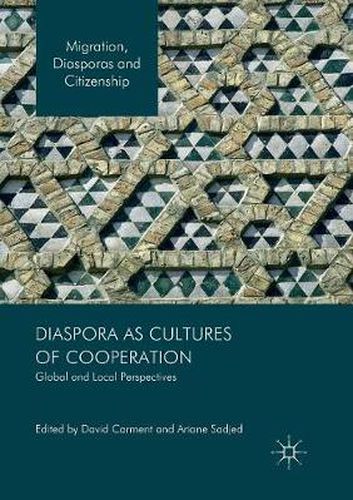Readings Newsletter
Become a Readings Member to make your shopping experience even easier.
Sign in or sign up for free!
You’re not far away from qualifying for FREE standard shipping within Australia
You’ve qualified for FREE standard shipping within Australia
The cart is loading…






This title is printed to order. This book may have been self-published. If so, we cannot guarantee the quality of the content. In the main most books will have gone through the editing process however some may not. We therefore suggest that you be aware of this before ordering this book. If in doubt check either the author or publisher’s details as we are unable to accept any returns unless they are faulty. Please contact us if you have any questions.
This book examines the dynamic processes by which communities establish distinct notions of ‘home’ and ‘belonging’. Focusing on the agency of diasporic groups, rather than (forced or voluntary) dispersion and a continued longing for the country of origin, it analyses how a diaspora presence impacts relations between ‘home’ and host countries. Its central concern is the specific role that diasporas play in global cooperation, including cases without a successful outcome. Bridging the divide between diaspora studies and international relations, it will appeal to sociologists, scholars of migration, anthropologists and policy-makers.
$9.00 standard shipping within Australia
FREE standard shipping within Australia for orders over $100.00
Express & International shipping calculated at checkout
This title is printed to order. This book may have been self-published. If so, we cannot guarantee the quality of the content. In the main most books will have gone through the editing process however some may not. We therefore suggest that you be aware of this before ordering this book. If in doubt check either the author or publisher’s details as we are unable to accept any returns unless they are faulty. Please contact us if you have any questions.
This book examines the dynamic processes by which communities establish distinct notions of ‘home’ and ‘belonging’. Focusing on the agency of diasporic groups, rather than (forced or voluntary) dispersion and a continued longing for the country of origin, it analyses how a diaspora presence impacts relations between ‘home’ and host countries. Its central concern is the specific role that diasporas play in global cooperation, including cases without a successful outcome. Bridging the divide between diaspora studies and international relations, it will appeal to sociologists, scholars of migration, anthropologists and policy-makers.